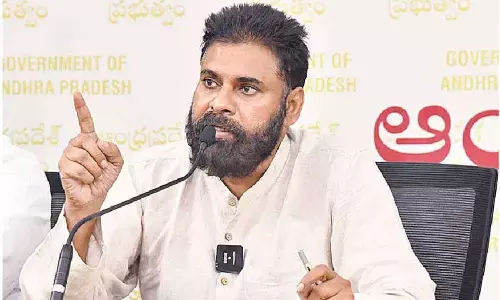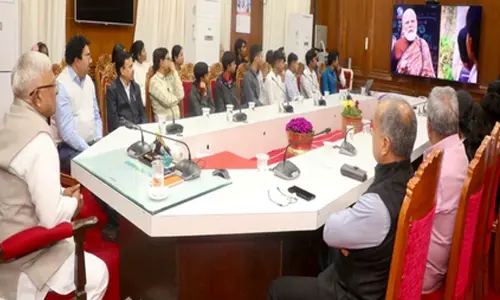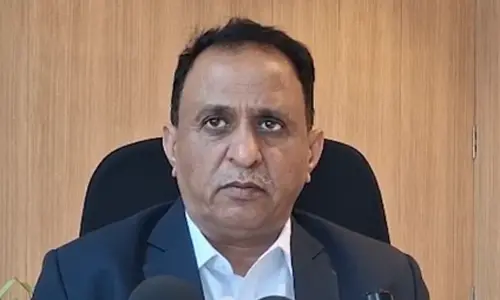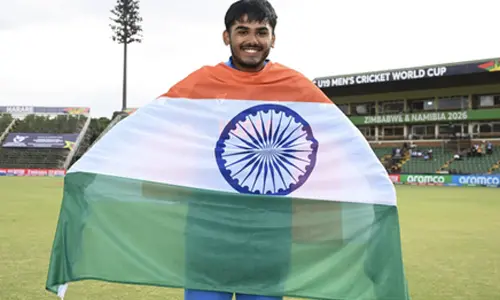Meet the man who keeps Charminar clocks ticking
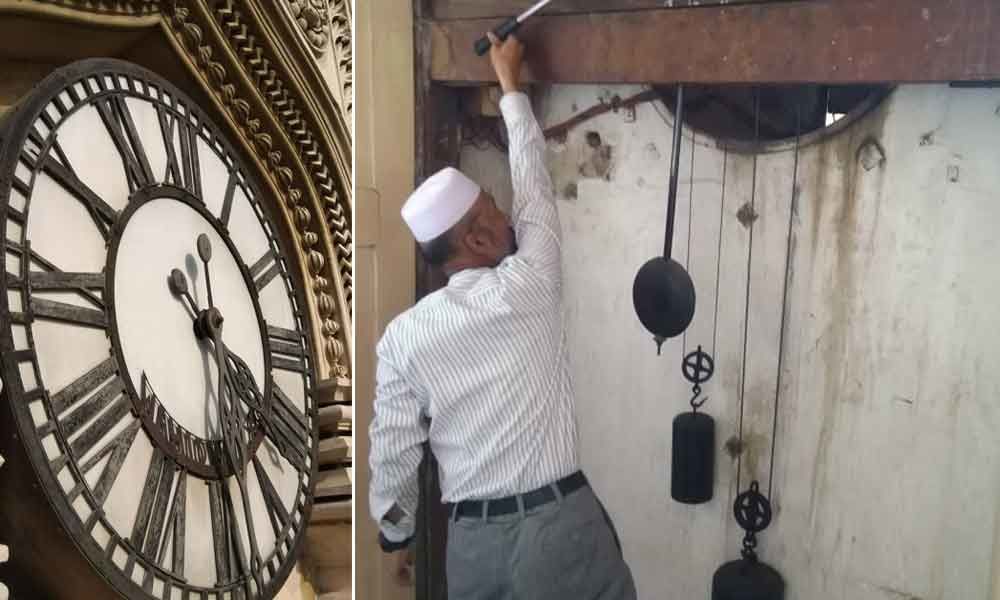
Even as the digital technology is making the analogue mechanism obsolete, which was the pride of foregone era, Wahid’s family has been holding on to the responsibility of maintaining all the four clocks on each side of historic Charminar’s arches, ever since they snagged the opportunity to show their expertise in 1962.
Charminar: Even as the digital technology is making the analogue mechanism obsolete, which was the pride of foregone era, Wahid's family has been holding on to the responsibility of maintaining all the four clocks on each side of historic Charminar's arches, ever since they snagged the opportunity to show their expertise in 1962.
Following the merger of the princely state of Hyderabad in Indian Union, the clocks of Hyderabad's iconic structure stopped ticking and Wahid's family has been the reason for the continuous ticking of the clocks for the last 57 years. After his father Late Rasool Khan made the clocks with his expertise and hard work, his son Sikander Khan, and then present proud owner of Wahid Watch Co took the responsibility of ensuring that the clocks show the right time to thousands of tourists and uphold the original purpose. The clocks were added to the original structure built by Quli Qutub Shah after almost three centuries in 1889.
In an interview to The Hans India, 70-year old Sikander Khan, the third generation of Wahid Watch Co, said that the four clocks of Charminar stopped ticking following the end of Nizam's era. The Wahid Watch Co. started by Wahid Khan, the grandfather of Sikander Khan, in 1942 was awarded the contract by Archaeological Survey of India (ASI) in 1962.
In the early 1960s, the maintenance of Charminar was taken up by the ASI, and in 1962 the ASI thought of the need to repair the clocks and issued a notice regarding their repair. Many top watch companies tried their hand on the project from all across India, but could not accept the challenge of repairing all the four clocks. Some said only two watches can be repaired by assembling the spare parts of other two. Rasool Khan took up the challenge and gave a quotation of repairing all the four clocks, and he got the chance to prove himself.
"The clocks of the Charminar were worn out, as many a spare parts made out of bronze were missing. Within the duration of about 2 months, Rasool Khan handed over the four clocks to the ASI department, and the clocks were fixed again on August 15, 1962, with a nominal charge of Rs 2,700. For repairing all the four clocks of Charminar many a parts were missing and some were not available in the market, my father manufactured his own spare parts and fixed the clocks," said Sikander Khan.
Rasool Khan had also mentioned in the quotation a guarantee of 3 years, and that if the maintenance of the clocks were given to Wahid Watch Co, it would be of lifetime guarantee, and the ASI has given the maintenance permission to his company for lifetime.
Antique clocks
The four prominent clocks on the middle of the arch on each side were brought from London during the reign of Nizam VI of Hyderabad, Mir Mahboob Ali Khan, in 1889. It has a unique design of net hands. The wind passing through these hands with net design does not affect the timing accuracy. All the four clocks show accurate time. For its mechanism, it needs to be given a key once in 48 hours.
Salarjung Museum clock
Speaking about the Salar Jung Museum Clock, Sikander said that in 1994 the Museum clock stopped working. Their team detected a total of 8 problems associated with the clock, and among them the major problem was hourly striking, as it started striking in any time.
Sikander Khan gave a quotation for the clock repair and mentioned that while repairing, they need to shoot the video of the repair as a precondition, and the director of Museum approved it. Sikander Khan, with his 8-member team, started repairing it, while video recording. A total of 352 spare parts were opened and kept aside. They were treated with chemicals and in 5 days, he and his team fixed all the 352 spare parts and handed over the clock to the Museum.








